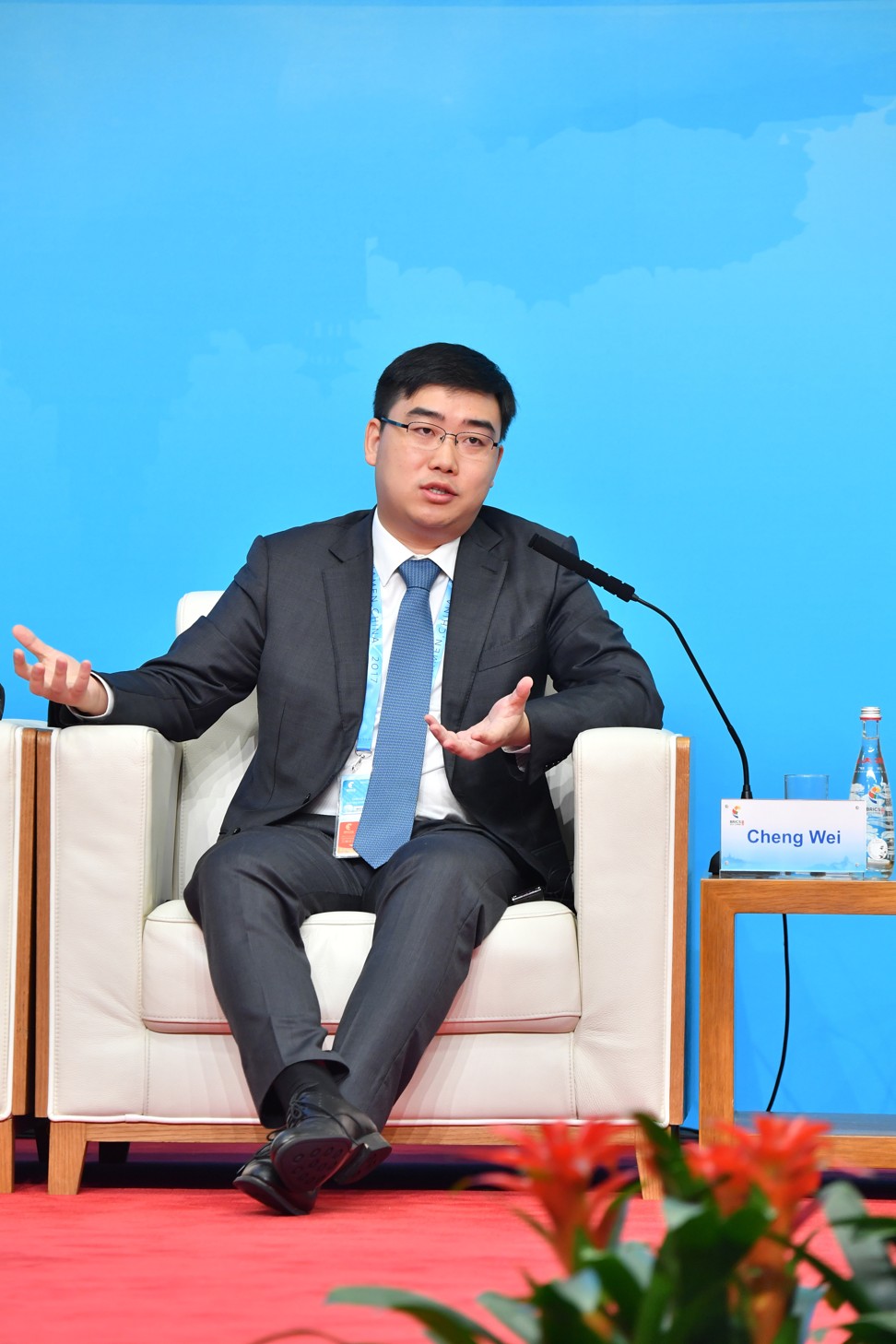
Didi plans major overseas push this year with expansion into traffic management
Cheng Wei, the founder and chief executive of Didi Chuxing, expects his company to rival Chinese internet giants Baidu, Alibaba and Tencent in being part of smart city projects
Chinese ride-hailing services provider Didi Chuxing aims to step up its expansion plans by undertaking more smart city projects, putting itself in direct competition against the country’s three-largest internet companies.
Didi, which is the world’s most valuable start-up, is betting that its smart city traffic management platform would help open up a new era in urban transport, in which artificial intelligence (AI) manages traffic lights and other related solutions for cities, according to company founder and chief executive Cheng Wei.
“Users will only need a smartphone in the future. Our smart transportation brain will take care of the rest, telling people what means of transportation to take and which routes to take,” said Cheng at Didi’s annual meeting held in Beijing last week.
Didi is the latest Chinese technology firm that is gearing up to become a major player in smart city products and services, which is a global market that is forecast to be worth US$1.6 trillion by 2020, according to research firm Frost & Sullivan.
Smart cities deploy information and communications technology solutions in three or more functional areas of a city government, according to research firm IHS. Examples include mobile and transport, energy and sustainability, physical infrastructure, governance, and safety and security.
These initiatives have emerged in response to an increasingly urbanised world dealing with scarce resources, along with the desire to improve efficiency.
IHS said the implementation of appropriate technologies would allow smart cities to better cope with pressing issues, while allocating resources more efficiently and helping to improve the quality of life for its residents.
In China, smart city initiatives will take advantage of future high-speed 5G mobile networks “to make use of artificial intelligence for public security, traffic management and disaster management”, while the major internet companies introduce more advanced consumer services, according to a report last year from Jefferies equity analyst Edison Lee.
“Didi hopes to become the world’s biggest one-stop mobility service operator and lead in building new energy car-sharing and smart transport platforms,” said Cheng at the Didi “all-hands” meeting.
The company launched last month its integrated solution for smart city traffic management, which harnesses data generated by its platform that compiles roughly 25 million rides per day.
Its Didi Smart Transportation Brain had a year-long pilot testing in more than 20 cities across China.
Cheng said Didi currently has more than 1,200 traffic lights on “smart control”.
He said the use of AI and big data will help “empower cities”.

Major competition in this field, however, included Baidu, Alibaba Group Holding and Tencent Holdings – the Chinese internet triumvirate collectively known under the acronym BAT.
Earlier this month, Baidu launched its partnership with Beijing government authorities to implement intelligent transport management in the Chinese capital’s Haidian district.
Alibaba, owner of the South China Morning Post, signed agreement with the government of Malaysia last month to harness big data, AI and cloud technologies to help the country’s cities run more efficiently.
Tencent’s cloud computing unit has also clinched similar deals with various local governments across China.
In terms of implementing a smart transport system, Didi may have the advantage over its rival internet giants in terms of data resources.
Didi, which took over Uber Technologies’ operations in China in 2016, currently has more than 400 million users across the country and records about 25 million rides per day.
Didi, which counts Apple, Alibaba and Tencent among its biggest shareholders, has also developed a global ride-hailing business amid its investments and technology alliances with Uber’s US rival Lyft, Southeast Asia’s Grab, Ola in India, Brazil’s 99, Taxify in Estonia and Careem, a ride-hailing operator in the Middle East and North Africa region.
“We believe that not only users and vehicles will be connected online, but also all roads and traffic lights. Transport management will also be part of this online network and become more intelligent,” said Cheng.
Valued at US$56 billion after its latest funding round in December, Didi started five years ago operating out of a rented flat in Beijing. It was a time when only 20 per cent of the city’s taxi drivers had smartphones, according to Cheng.
“In the past, no one truly believed Didi would become a player in smart transport, but now the reality is that most overseas institutions refer to us as a leading smart transport solution provider for this day and age,” he said.

